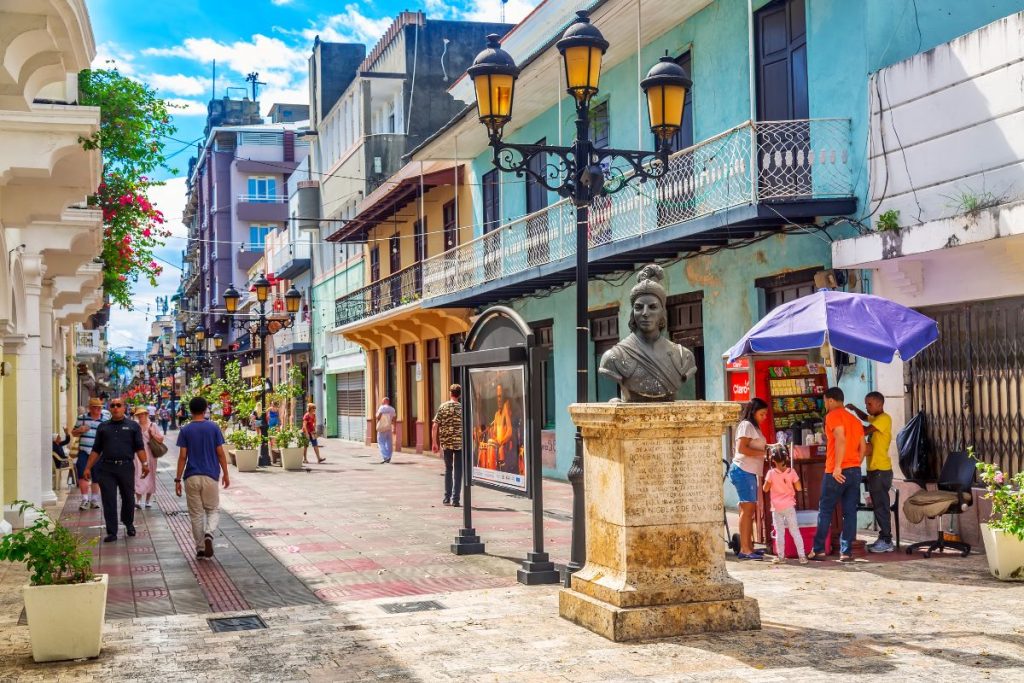The Dominican Republic is generally a safe place to visit and the vast majority of trips to the country are without incident. It is crucial to stay in safer neighborhoods such as the Zona Colonial due to the high crime rate in some areas of Santo Domingo, including opportunistic crimes such as pickpocketing and bag snatching.
LATEST NEWS from DOMINICAN REPUBLIC
February 12 – The Dominican Republic and the US Embassy reach an agreement to ensure the safety of visitors
According to a cooperative agreement at the US embassy in the country, security has been given the highest priority, according to David Collado, Minister of Tourism.
The memorandum lists visitor safety and hotel staff training as top priorities.
The document establishes procedures for situations involving foreigners in the country and formalizes the security guarantee for American tourists traveling there. Foreign visitors from the US made up 47% of the total since last year, contributing to a 22% increase in tourism.
Official travel advice
US travel advice
The US travel advisory for the Dominican Republic is at level 2: Be extra careful. Crime including murder, assault and armed robbery is a problem in the Dominican Republic. Resort areas tend to be better policed than urban areas such as Santo Domingo due to the creation of a professional tourism police force, the establishment of a 911 system in many parts of the country, and the concentration of resources in these areas.
The biggest threat to tourists is opportunistic crime, which accounts for the majority of incidents. Criminal activities such as pickpocketing and bag snatching are common throughout the country. Thieves often target tourists. There is usually an increase in crime during the holidays.
Incidents mainly happen in resorts, beaches, airports, bus terminals and in public transport.
Areas to avoid
Although crime is high in the Dominican Republic, it is mainly concentrated in places and places that few tourists visit.
The capital of Santo Domingo has several high crime neighborhoods including Arroyo Hondo, Naco, Gazcue, Cristo Rey and Villa Agricola. There have been violent crimes such as robberies, theft and even murder. Always hand over your belongings when requested.
Common scams
Be careful with charming Latino men who cater to solo female travelers or small groups. They may use flattery and persistence to extort money, alcohol, meals and entertainment expenses from you, or even talk you into marrying them and taking them back to your home country.
To minimize the risk of falling prey to scams, avoid interacting with strangers or bringing them to your accommodation.
Stay vigilant about camera scams while traveling. Locals can ask you to take a photo and then demand payment for alleged damage when their camera ‘accidentally’ falls.
Be careful when using taxis in the Dominican Republic. Negotiate rates and maintain awareness to avoid falling victim to scams and being overcharged.
Safety tips for the Dominican Republic
- Never leave valuables in plain sight. Make sure your bags are locked when you leave your hostel or hotel.
- Resist the urge to give money to street children, as this perpetuates begging.
- Cases of dengue, Zika virus and chikungunya virus have been reported on this Caribbean island, especially during the rainy and hurricane seasons (May, September, October and November). Protect yourself by using insect repellent, wearing long sleeves and pants, and sleeping under a mosquito net.
- Choose licensed taxis over unregistered taxis. Look for a taxi with a visible sign on the roof stating the name of the taxi company.
- Always wear a helmet when riding a motorcycle.
- Do not wear flashy jewelry when walking on the street as it can attract the attention of thieves, often on motorcycles.
- Avoid using your phone while on the street. If you want to make a call or look at a map, step into a cafe or restaurant before pulling out your phone.





